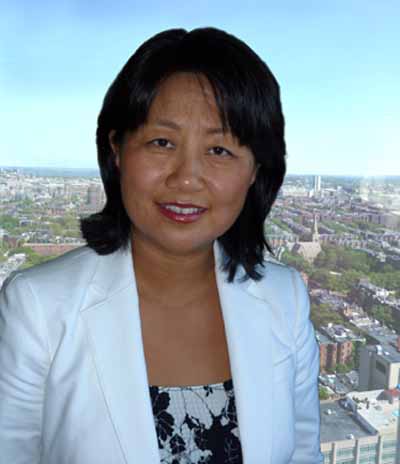
WASHINGTON (BP)–China will have, by 2020, 40 million more men than women under the age of 20 — a number equal to the current total of men under the age of 20 in the United States, Chinese population experts are projecting.
“Tens of millions of Chinese men will never be able to marry because potential wives don’t exist,” Rep. Chris Smith, R-N.J., said in a news conference commemorating the 30th anniversary of the one-child policy in China.
The controversial Chinese policy permits only one child in the majority of Chinese families. While some exceptions may be made for ethnic minorities, rural families and couples who are the only children of their parents, most Chinese families are forced to abide strictly by the law.
Prior to the one-child policy, the Chinese government encouraged large families because it believed a high population meant a greater work force. However, this caused a population boom, and China couldn’t sustain itself — famine and starvation killed an estimated 30 million people.
“The one-child policy was the only choice we had, given the conditions when we initiated the policy,” Chinese legislative body spokesman Wu Jianmin said in a Sept. 25 press conference.
The Chinese government says the policy has prevented a reported 400 million births. The government may celebrate that number, but the law also has come at a cost, such as the numerous reports of forced abortions and sterilizations in many Chinese provinces. The government places enormous pressure on local officials, promising them promotions if they maintain population quotas. Such incentives compel the officials to use drastic measures to earn positive evaluations.
China also has the highest female suicide rate in the world. According to the World Health Organization, more than 500 women a day commit suicide in China. Many say this high rate is a direct effect of the trauma caused by the one-child policy.
While some of the policy’s consequences have been evident for some time, other serious effects have only recently been coming to light.
Most traditional Chinese families prefer sons, and expectant parents are using ultrasound technology to identify the sex of the baby before it is born — leading to a significant increase in abortions of girls. Incidents of female infanticide also are reported. Rather than merely limiting the increasing population, the population control policy has instead led to a radically uneven ratio of boys to girls: currently approximately 120 boys per every 100 girls.
The uneven gender ratio is noted as a significant cause of the growing human trafficking issue in the country. The lack of women has incited men to resort to trafficking women from surrounding countries “for purposes of forced labor, marriage and sexual slavery,” according to the U.S. State Department.
Beyond the large gender gap, the policy may have other extreme consequences in the near future — China is developing an out-of-proportion elderly population.
This puts a major strain on the Chinese labor force, as more workers reach retirement age and fewer youth are available to replace them. Some companies have moved their operations to other countries as a result. This trend likely is a sign of what demographers and economists predict will be China’s eventual loss of its comparative labor advantage to competing countries such as India and Bangladesh. Population projections show that by 2030, India will become the world’s most populous country, with 1.53 billion citizens compared to China’s 1.45 billion.
On top of that, China’s shrinking working-age population will have to shoulder an increasing workload (financial and otherwise) of caring for a massively elderly population.
The devastating repercussions of the one-child policy have led some international human rights activists to take action. Rep. Smith and other human rights advocates spoke at an anniversary press conference on Capitol Hill to promote awareness of the situation in China and encourage the Chinese government to lift the policy.
“I appeal to … the Chinese premier, Wen Jiabao, who is in New York City today: When you go back to China, re-examine the policy and its cruelty,” Smith said.
The event was co-hosted by All Girls Allowed, an organization that “works to support Chinese families in villages with the greatest gender imbalance and spreads awareness of human rights violations and the issue of gendercide.” Chai Ling, a China native, founded the group.
Ling, who has been nominated for two Nobel Peace Prizes for her human rights efforts, has been concerned with the situation in China for many years. Aside from her recent work dealing with the one-child policy, Ling was also a student leader in the Tiananmen Square massacre, a large demonstration in China in 1989 that was crushed by the government, resulting in the death of several hundred people.
After Ling escaped China, she was apprehensive about getting directly involved in the country’s affairs again. She changed her mind after a November 2009 congressional hearing in which a Chinese woman spoke about her government-enforced abortion and the trauma she endured.
“I realized this is the Tiananmen Square massacre happening every hour,” Ling said.
She launched All Girls Allowed this year as a response to her growing convictions about the injustice of the policy. Her relatively new Christian faith helped her find the strength to fight her previous apprehensions and take action.
“I was a new Christian; I thought I wasn’t ready,” she said, “but I learned that when you are called, you’re supposed to step out.”
All Girls Allowed encourages Chinese families to keep their baby girls by sending them baby shower baskets. The organization also strives to help orphaned girls in China and restore dignity and self-respect to Chinese women.
–30–
Hannah Cummings is an intern with the Washington bureau of Baptist Press. All Girls Allowed is located on the Internet at www.allgirlsallowed.org.

















